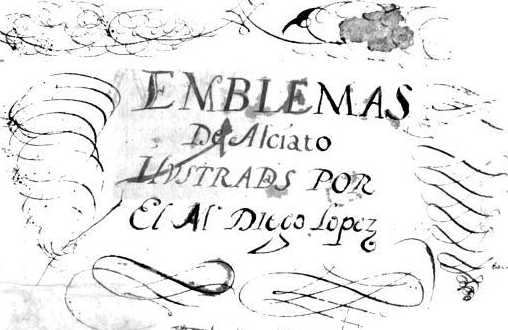
Libraries
Libraries
Masterful statement on the emblems of Andrés Alciato …, translated by Diego López
The present edition of 1615, by Diego López, includes valuable elements for the dissemination of the work of Alciato in the Spanish world. The emblems by Alciato thanks to this edition (later reprinted at the end of the century), circulated with the Castilian version of the comments of the Brocense (Francisco Sánchez de las Brozas) and Claude Mignault (published in Latin in 1573). The engravings, according to those in charge of the la Biblioteca Histórica de la Universidad Complutense de Madrid, were elaborated from the Lyon editions of Bonhomme and Roville. Please click here to check the reprint of Valencia.
Library of Santiago de Cárdenas
The book of emblems of Alciato is a reference as original as gloomy within the bibliographical repertoire of Santiago de Cárdenas. This text is the starting point of a European literary style that lasted less than three centuries and was typified by combining in a complicated image some knowledge of moral or spiritual character that the author sought to transmit to an observer −who had to discover it by integrating both elements, accompanied by a brief phrase.
Cárdenas’s hidden reference to the book of Alciatus appears in the illustration that was in the title of his treatise. It reproduces partially the emblem 121, quoting word by word this phase: “Ingenio poteram superas volitare per arces, Me nisi paupertas invida deprimeret”, which textually means: “With my intellect I could be flying among the highest peaks, if the envious poverty did not pull me down “. This careful reference does not fail to have a brilliant double meaning, given the content of his work and the reception he had. The flight here signifies both the physical process of navigating the air, and the allegory of its intellect. He does not only refer to material poverty, but to the intellectual incapacity of those contemporaries who were unable to understand him.

